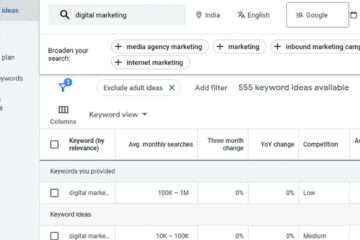Local SEO is an important tool for growing local businesses in the digital age. It uses various strategies to improve your website and online presence so that your business gets a higher ranking in local search results. In this guide, we will tell you about some important ways to improve local SEO.
What is Local SEO?
Local SEO is a search engine optimization (SEO) technique that helps your business rank higher in local search results. This means that when people search for your product or service in your city or region, your website appears in their searches.
Importance of Local SEO
Local SEO is important because it helps small businesses reach their local customers. It is especially beneficial for businesses that provide products or services in their locality. Higher rankings lead to more traffic, more leads, and ultimately more sales.
Google My Business
Google My Business Profile Setup
Google My Business (GMB) is an essential tool for your local SEO. First, you need to set up your GMB profile. This includes your business name, address, phone number, website URL, and business category. Make sure all information is correct and updated.
Google My Business Profile Optimization
To optimize your GMB profile, upload high-quality photos, post regularly, and answer your customers’ questions. Also, monitor and respond to reviews and ratings of your business.
Local Keyword Research
How to Choose the Right Keywords
Choosing the right keywords is an important part of Local SEO. You need to identify the keywords your potential customers are searching for. You can use Google Keyword Planner and other keyword research tools for this.
How to Use Keywords
Once you have chosen the right keywords, include them in different parts of your website such as page titles, meta descriptions, headings, and content. Use keywords naturally so that your content feels natural to read.
On-page SEO
Title and meta description
Optimize the title and meta description of each page. This not only gives search engines information about the content of your page but also attracts users.
URL structure
Keep the URL structure clean and precise. Use keywords in it and remove unnecessary words.
Use of heading tags
Use heading tags (H1, H2, H3, etc.) correctly. The H1 tag should be for the main title of the page and use other tags for subheadings.
Local content creation
Blog posts and articles
Write blog posts and articles on local topics. This makes your website more relevant in local searches.
Local events and news
Write about local events and news happening in your area. This makes your content more useful and attractive to the local audience.
Mobile Optimization
Mobile-friendly website
Make sure your website is mobile-friendly. Most people search on mobile devices, so your website needs to be responsive.
Page Speed Improvement
Improve your website’s page speed. Slow websites frustrate users and also affect your rankings.
Local Backlinks and Citations
Local Directory Submission
Submit your website to local directories. This strengthens your business’s local presence.
Backlinks from Influential Sites
Get backlinks from local and influential websites. This increases your website’s credibility and ranking.
Social Media and Local SEO
Setup Social Media Profiles
Set up your business’s profiles on all major social media platforms. This increases your online presence.
Targeting Local Audiences
Use social media ads and posts to target local audiences. This gives your business local recognition.
Customer Reviews and Ratings
How to Get Reviews
Encourage your customers to leave reviews. You can ask them to leave reviews via email, social media, or on your website.
How to Handle Negative Reviews
Handle negative reviews calmly and professionally. Resolve customer issues and respect their feedback.
Analytics for Local SEO
Using Analytics Tools
Use Google Analytics and other analytics tools to analyze your SEO efforts.
Review and Improve Data
Review analytics data and make necessary improvements to your SEO strategies.
Location-Based Service Pages
Creating Pages for Different Locations
If your business has multiple locations, create separate service pages for each location.
Optimizing Each Page
Optimize each page with local keywords and information so they perform better in local searches.
Conclusion
Local SEO is a powerful tool to promote your business locally. By following the above strategies, you can strengthen your business’s online presence and attract more local customers.
FAQs
1. What is Local SEO?
Local SEO is a technique that helps your business rank higher in local search results.
2. How to set up a Google My Business profile?
Set up a GMB profile by keeping all your business information correct and updated.
3. How to choose the right keywords?
Use Google Keyword Planner and other keyword research tools.
4. Why is local content important?
It makes your website more relevant in local searches.
5. Why is a mobile-friendly website important?
Most people search on mobile devices, so your website needs to be responsive.











